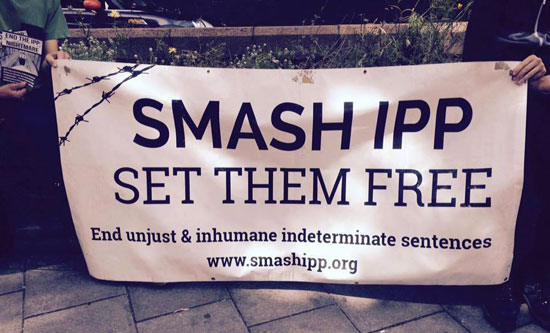
The announcement in early January 2018 that the Parole Board had directed the release of convicted rapist and former London taxi driver John Worboys/Radford prompted an outcry. Legal challenges opposing his release and demanding disclosure of the Parole Board’s written reasons for their decision were quickly filed by the Mayor of London, as well as by two women who were already involved in litigation against the police for not taking seriously their claims that they had been victims of Worboys. These judicial review challenges were heard by the High Court on 13 and 14 March and the judgment is currently expected.
Worboys was sentenced in 2008 to an Indeterminate Sentence for Public Protection (IPP) with a tariff (minimum term) of eight years. When the Parole Board considered his case and decided that releasing him from prison to an approved probation hostel would not constitute an unmanageable danger to the public, he had been behind bars for ten years. Very unusually, he was still located in a high security prison and had spent no time in Category D open conditions, which is the standard way for a prisoner who has completed the relevant ‘offending behaviour courses’ to demonstrate to the authorities that he can be trusted prior to release.
Surprising as this decision was, the attention focussed on it masks an altogether different scandal – that of the many lesser known IPP prisoners who are years past their tariff and whose release is repeatedly refused by the Parole Board.
IPPs were introduced in 2003 by Tony Blair’s Labour government, replacing the already controversial ‘two-strikes’ life sentence which it had inherited from the previous Conservative administration. The IPP sentence consists of a minimum custodial period of a length specified by the sentencing judge, which is then followed by an open-ended period of detention until such time as the Parole Board decides the prisoner is safe to be released.
The IPP sentence was unpopular from the start, although some Labour politicians continue to defend it until today. In 2008 the government was forced to amend the provision so that prisoners whose crime only merited a very short tariff of less than two years could no longer be subject to indefinite sentencing.
In 2012 the ConDem coalition government abolished the IPP. However, neither this nor the earlier partial change was made retrospective, so there was no respite for those already sentenced. In 2012 over 6,000 IPP prisoners (of the total 8.711 who received the sentence while it was in force) remained incarcerated, with 3,029 still imprisoned at the end of 2017. Of those prisoners 87% are past their minimum tariff date and 18% (831) have at some point been released but then have been recalled back to prison for breaching their licence conditions.
In 2006, 18-year-old Anthony McGuire pled guilty to an offence of wounding with intent and was given a 30-month IPP. In 2013, having not been released but having made it to an open prison, he absconded and was at large for two days. Because of a 2015 change to the directions given to Parole Boards, Anthony cannot go back to an open prison but must prove he is fit to be re-released from a closed one. He has now served 12 years. His friends say that as a result of his prolonged imprisonment, he is suffering from mental health problems which in turn are impeding his being considered fit for release.
There are many more such examples: a woman prisoner who cannot complete the behavioural courses needed to convince the Parole Board she is safe to release because of cognitive and language problems and is eight years past her tariff; an asylum seeker who received a short tariff IPP in 2006 and has now finally been released after 12 years inside, only to have to now begin a fresh battle against deportation. This is the stuff of nightmares, and would be subject to international condemnation if it were happening in some country other than the one which continues to repeat mantra-like that its legal system is ‘the envy of the world’.
Although the 2012 legislation which abolished the IPP did not provide directly for the release of those already sentenced, it did set out a way in which this could be achieved. Section 128 of the Legal Aid, Sentencing and Punishment of Offenders Act allows for the ‘release test’ for certain groups of ‘discretionary release prisoners’, including IPPs, to be changed. In August 2017 the incoming chair of the Parole Board Nick Hardwick stated that he was in favour of such a change, at least for those prisoners who had received the pre-2008 short tariffs and were still trapped in the system. For those prisoners ‘the onus should be on the state to prove they are likely to commit a further offence, rather than for them to prove they are not’.
The legislation clearly allows the government to take this step in relation to some or all IPP prisoners, and some politicians would undoubtedly like to be able to reduce the prison population. However, to date the government has recoiled from adopting this approach even in relation to short-term IPP prisoners. This is certainly due in the main to the fear of a media backlash – most likely supported by Labour politicians from the government that brought in the IPP originally. Campaigners against the IPP and for justice for those still in prison will find their task even harder in the wake of the Worboys case.
Nicki Jameson




